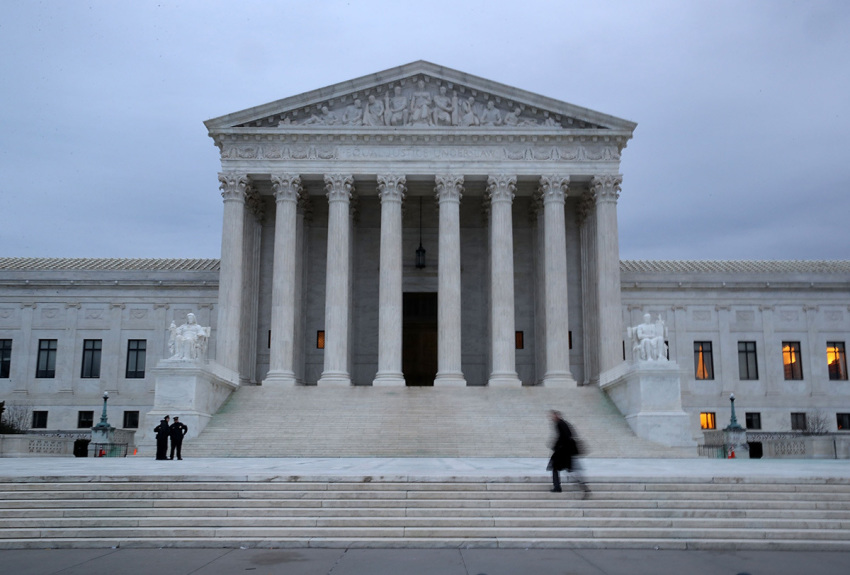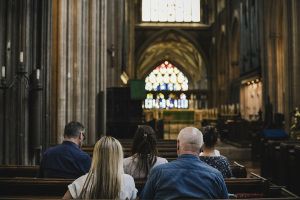Supreme Court allows Idaho to enforce law banning sex change surgeries, puberty blockers for minors

The U.S. Supreme Court on Monday ruled 6-3 in favor of overturning a lower court ruling that temporarily blocked Idaho from enforcing a law banning surgical and hormonal gender interventions for trans-identified minors amid ongoing lawsuits.
Under Idaho's Vulnerable Child Protection Act, which Republican Gov. Brad Little signed after state lawmakers passed it last April, doctors who provide puberty-blocking drugs, cross-sex hormones and sex-change surgeries for trans-identified minors face up to 10 years in prison.
U.S. District Judge B. Lynn Winmill, a Clinton appointee, issued a preliminary injunction in December blocking enforcement of the law to protect two anonymous teenage plaintiffs and their parents who sued over the law's constitutionality.
After the 9th U.S. Circuit Court of Appeals declined to stay the lower court's opinion, Idaho's Republican Attorney General Raul Labrador filed an emergency motion requesting that the U.S. Supreme Court limit Winmill's injunction to the two plaintiffs while allowing the law to take effect.
Labrador said at the time that "the state has a duty to protect and support all children" from "the devastating consequences of drugs and procedures used on children with gender dysphoria."
While the Supreme Court's decision this week did not rule on whether Idaho's state law is constitutional, Justice Neil Gorsuch warned about the precedent of judges issuing broad injunctions against laws in response to a "limited dispute" involving a few plaintiffs.
"In recent years, certain district courts across the country have not contented themselves with issuing equitable orders that redress the injuries of the plaintiffs before them, but have sought instead to govern an entire State or even the whole Nation from their courtrooms," Gorsuch wrote in an opinion that was joined by Justices Clarence Thomas and Samuel Alito.
"As in so many other recent cases, the district court's universal injunction effectively transformed a limited dispute between a small number of parties focused on one feature of a law into a far more consequential referendum on the law's every provision as applied to anyone," Gorsuch added.
Gorsuch wrote that the plaintiffs "face no harm from the partial stay the State requests" and that "the district court's preliminary injunction will operate to prevent state authorities from taking any action to interfere with their ability to access the particular drug treatments they seek."
Justices Brett Kavanaugh and Amy Coney Barrett also ruled in favor of allowing the law to be otherwise enforced. However, they did not express the same concerns about overbroad injunctions.
"In short, a rule limiting the scope of district court injunctions may be correct as a matter of law, even apart from its effects on this Court’s emergency docket. And the result of a rule against nationwide or statewide injunctions may be to somewhat reduce the number of emergency applications involving new laws where this Court must assess likelihood of success on the merits," Kavanaugh wrote.
"But that rule would not eliminate the need for this Court to sometimes decide important emergency applications involving new laws by assessing likelihood of success on the merits."
The court's three liberal-leaning justices wrote that they would have continued to block the law. Justice Ketanji Brown Jackson wrote that it would have been preferable to allow the lawsuit to proceed "unfettered by our intervention."
"We can, and usually should, wait to provide our assessment in the ordinary course —when it is our turn to do so," she wrote. "Put differently, whenever this Court must determine whether to exercise its discretionary power to intervene in pending cases on an emergency basis, I firmly believe we must proceed with both reason and restraint. Because the majority demonstrates neither today, I respectfully dissent."
Chief Justice John Roberts did not write or join an opinion.
Lawyers for the American Civil Liberties Union and the ACLU of Idaho, which is representing the plaintiffs, criticized the high court's ruling as "an awful result for transgender youth and their families."
"Today's ruling allows the state to shut down the care that thousands of families rely on while sowing further confusion and disruption," they wrote. "Nonetheless, today's result only leaves us all the more determined to defeat this law in the courts entirely, making Idaho a safer state to raise every family."
Idaho is one of 23 states that have enacted bans on some or all forms of gender transition procedures for minors. The others are Alabama, Arizona, Arkansas, Florida, Georgia, Indiana, Iowa, Kentucky, Louisiana, Mississippi, Missouri, Montana, Nebraska, North Carolina, North Dakota, Ohio, Oklahoma, South Dakota, Tennessee, Texas, Utah and West Virginia.
In Arkansas, a federal judge struck down a similar restriction as unconstitutional last year, which is presently under appeal in the 8th Circuit. A similar ban in Montana is also temporarily on hold.
Jon Brown is a reporter for The Christian Post. Send news tips to jon.brown@christianpost.com



























